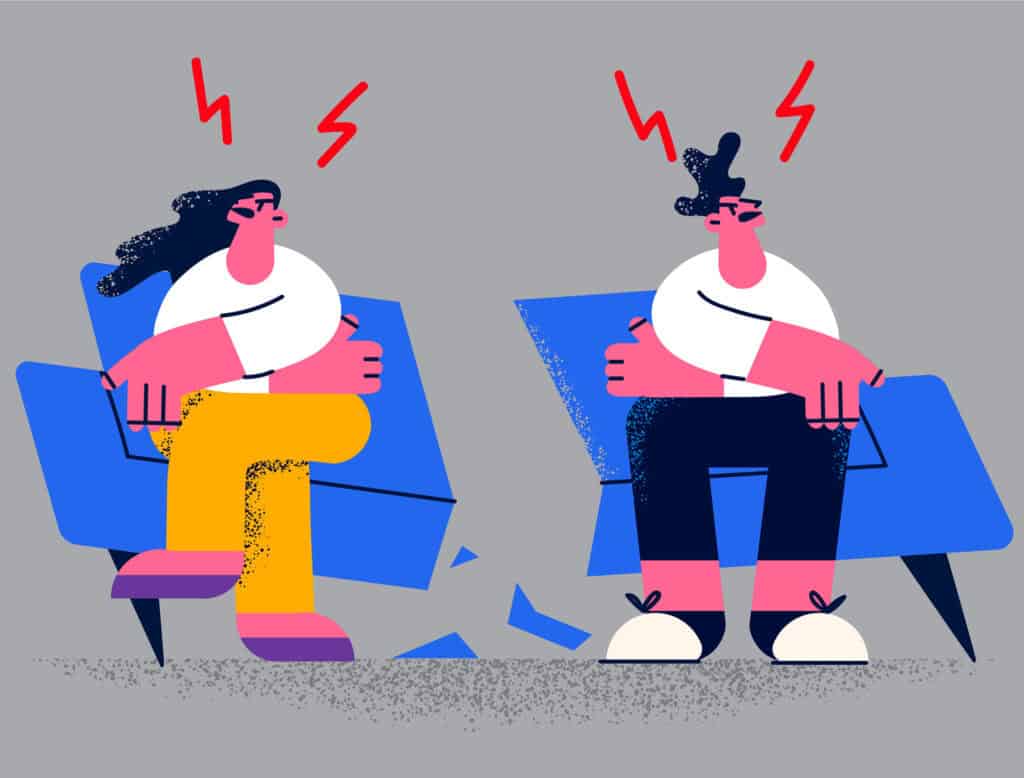5 Strategies for Treating Highly Volatile Couples

All couples engage in some conflict when they’re in therapy. But some can’t seem to manage themselves for even a few minutes without exploding into rage, resentment, blame – or dissolving in tears. Why Volatile Couples Present Unique Challenges in Therapy If you’re treating a volatile couple, their repetitive, heated responses to your questions lead […]
Betrayal Trauma and Infidelity: What Therapists Need to Know

When couples come in after an affair is revealed, the presenting issue is often labeled simply: infidelity. But what sits underneath that word is much more complex – and much more painful. It’s not just about sex. It’s not only about deception. It’s about a unilateral decision to blow up what was previously a mutual […]
Infidelity, Political Tension & Real Therapy Moments: Part 2 of Conference Highlights from the Psychotherapy Networker Symposium

Once again, I am on a plane with some time to write. I’m glad to complete part two of the Networker Conference highlights for you. I’ll start with the workshop I presented on Infidelity, then summarize a keynote panel on Therapy in a Polarized World, and also two clinical workshops demonstrating therapy unfold in real […]
Challenging Communication with your Conflict Avoidant Couples

I recently sat in my office listening to a couple named Bill and Sally describe twenty years of conflict avoidance and intimacy avoidance. Their communication was packed with vague unspecified references and overflowing with examples of passivity. I thought, “Some couples work so very hard to avoid any intensity. Will Bill and Sally allow me […]
A Dialogue for Individual Goal-Setting with Conflict-Avoidant Couples

When working with couples within The Developmental Model, it’s crucial to help partners set self-focused, individual goals to support the process of differentiation. This presents more of a challenge with some couples than with others. I’m thinking in particular about conflict-avoidant couples. These are couples who likely have developed well-established patterns of shying away from […]
Principles & Techniques for Working with Conflict Avoidant Couples

In my last post, I shared 4 key insights that can help you lay the groundwork for counseling couples who shy away from conflict. In looking at the challenges posed by this pattern, it’s clear that conflict avoidance reveals itself in many ways. Your first clue may be the long, tense silences that follow when […]
Understanding the Hidden Dangers of Conflict Avoidance

You’ve seen the pattern before. A couple comes to you, seeking help with tension that they just can’t understand or resolve. As you’re working to build openness and trust with them, you begin to notice that one or both partners react strongly when there’s the slightest hint of difference or disagreement. What happens next may […]
Conflict Avoidant Couples Grow by Learning to Handle Emotional Intensity

When a couple with a long-term conflict-avoidant history comes to see you, change is often excruciatingly slow. You may wonder, “Am I being effective?” Here is why these couples are challenging: Many partners wait for their spouses to take the active role, while they remain passive or inactive themselves. These partners usually want better relationships […]
Conference Highlights from the Psychotherapy Networker Symposium

As I fly home from the vibrant energy of the Psychotherapy Networker Symposium in Washington, DC, I’m reflecting on what an exceptional conference it was. I spent three inspiring days attending thought-provoking workshops, viewing excellent clinical videos, and renewing heartfelt connections with longtime friends, Developmental Model trainers, and trainees. Here are a few key highlights […]
Conflict avoidance comes in many forms.

Conflict avoidance comes in many forms. Do you recognize these? 1. Some couples avoid so many issues that you feel enormous tension just sitting in the room with them. For years they have shied away from discussing any issues that are potentially high-conflict. 2. These friendly conflict avoiders are warm, gracious and engaging. They just […]

 We respect your privacy,
We respect your privacy,